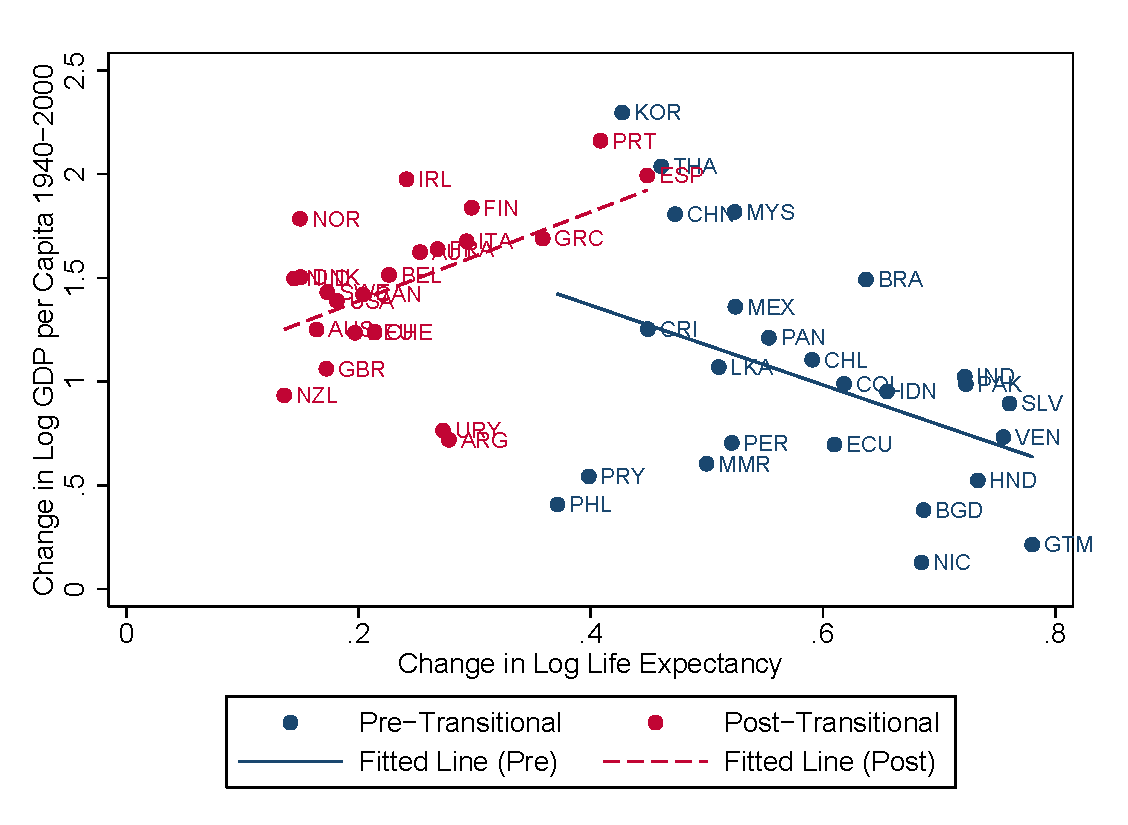- Викладач: Hager Sebastian
- Викладач: Khalid Schanzah
- Викладач: Waldinger Fabian
- Викладач: Akbar Rushde
- Викладач: Bernhardt-Walther Karen
- Викладач: Fernandez Castro Silvia
- Викладач: Lang Matthias
- Викладач: Strandt Helene
- Викладач: Gsell Sebastian
- Викладач: Steinbach Ines
- Викладач: Winter Joachim
Dear students,
in this course we will learn and discuss topics in the intersection of innovation and globalization – two areas that in Economics are typically studied separately. However, in today’s world innovation and globalization are tightly linked: Technological innovation spreads globally and has global impacts, and globalization is often the driver for innovation. At the same time, we have witnessed rapid developments in both globalization and technological change over the past few decades. The world has never been more integrated with respect to trade, foreign direct investment and technology.
More specifically, we will study three important questions in this course:
1. How does globalization affect innovation?
2. What is the role of technological change to alleviate climate change driven by globalization?
3. How did important historical innovations affect globalization?
This course is designed for students in the Master's or PhD program in Economics.

- Викладач: Mao Yifan
- Викладач: Steinwender Claudia
Liebe Studierende,
herzlich willkommen zum digitalen Kursraum der Veranstaltung Grundlagen der VWL 2. Dieser ist in Kapitel aufgeteilt. Hier finden Sie zu jedem Kapitel der Vorlesung das zugehörige Vorlesungsvideo, die Übungsvideos sowie sämtliche Unterlagen zu Vorlesung und Übung. Sie haben überdies die Möglichkeit inhaltliche Fragen zur Vorlesung oder zur Übung zu stellen.
Wichtig: Für eine ausführliche Beschreibung der Organisation des virtuellen Semesters schauen Sie bitte das Video "Vorstellungsrunde & Organisatorisches" und lesen Sie bitte das PDF-Dokument "Semesterübersicht".
Unter Ankündigungen werden wichtige, den Ablauf betreffende Ankündigungen verbreitet. Bitte prüfen Sie regelmäßig, ob es neue Ankündigungen gibt.
Unter Generelle Fragen zur Veranstaltung können sie organisatorische Fragen zur Veranstaltung stellen. Bitte prüfen Sie hierbei, ob eine ähnliche Frage bereits gestellt wurde. Wir bitten Sie von individuellen E-Mails abzusehen, da auch Ihre Kommilitoninnen und Kommilitonen von der Beantwortung der Frage im Forum profitieren.
- Викладач: Miethe Jakob
Die Makroökonomie beschäftigt sich mit der Beschreibung gesamtwirtschaftlicher Zusammenhänge und untersucht die wirtschaftliche Entwicklung als Ergebnis des Wechselspiels zwischen verschiedenen Märkten. Ziel dieser Einführung zur Makroökonomie soll dabei sein, ein grundlegendes Verständnis von Gütermärkten, Finanzmärkten, und Arbeitsmärkten sowie dem Außenhandel zu gewinnen.
Dieses grundlegende Verständnis soll es weiterhin erlauben, die qualitativen Auswirkungen von Wirtschaftspolitik – insbesondere Geld- und Fiskalpolitik – auf die Gesamtwirtschaft zu verstehen und zu analysieren.
- Викладач: Gerhardts Ilka
- Викладач: Weber Lukas
- Викладач: Wiederholt Mirko
- Викладач: Busch Christopher
- Викладач: Rude Johanna
- Викладач: Überfuhr Thomas
This course offers an introduction to the ongoing debates about the determinants of long run development, about the reasons for world inequality, and about the perspectives for growth in the future. The course will discuss topics related to the dynamics of long-run growth from a theoretical and empirical perspective and will be structured as follows:
i) a lecture part, which will familiarize students with background and methods;
ii) a tutorial part, which is devoted to the discussion of topical questions and related papers.
Outline:
The course will focus on recent contributions to unified theories of demographic, institutional, and economic dynamics well as empirical investigations of implications of these models. The aim is to provide students with a comprehensive overview of the topic.
The tentative syllabus is as follows:
1. Background and Empirical Facts
2. The Role of Demographics: Malthusian Models
3. Fertility and the Quantity-Quality Trade-off
4. Unified Growth Theory
5. Long-Run Growth and Comparative Development
6. Institutional Development: Democracy
7. Institutional Development: Rule of Law
8. The Bigger Picture
The target groups are master and PhD students interested in long-run development. The aim is to familiarize students with reading and discussing recent research papers, to expose them to influential contributions in the field and to help them develop their own research ideas.

- Викладач: Sunde Uwe
Macroeconomics provides you with the core concepts and models used in
macroeconomics. The focus is on the basics for analyzing growth and
business cycles. In contrast to bachelor-level courses, we concentrate
on micro-founded models of intertemporal choice. The course covers some
of the most important workhorse models of macroeconomics and we study
their implications for macroeconomic policy. The course will be made up
of 7 chapters:
1. Some Facts and Basics
2. Neoclassical Growth: The Solow Model
3. Neoclassical Growth: The Ramsey Model
4. Overlapping Generations Models
5. Towards Endogenous Growth
6. Endogenous Economic Growth
7. Models of (Real) Cyclical Fluctuations

- Викладач: Sunde Uwe
- Викладач: Falck Oliver
- Викладач: Milojevic Filip
- Викладач: Vollmer Leonhard
- Викладач: Weishaar Daniel
- Викладач: Burdea Valeria
- Викладач: Schmidt Klaus
Digitaler Kursraum zur Wiederholungsübung der Finanzwissenschaft & Wirtschaftspolitik im Wintersemester 2021/22
- Викладач: Kassner Bernhard
- Викладач: Ferey Antoine
- Викладач: Haufler Andreas
- Викладач: Englmaier Silke
- Викладач: Fuß Hannah
- Викладач: Weise Sarah
- Викладач: Ho Hoa
- Викладач: Maier Johannes
Die Mikroökonomik beschäftigt sich damit, das wirtschaftliche Verhalten
von Haushalten und Unternehmen zu analysieren und die Funktionsweise von
Märkten (und anderen Institutionen), in denen Haushalte und Unternehmen
interagieren, zu erklären. Die Vorlesung führt in die Grundlagen des
Faches ein, gibt einen Überblick über weitergehende Themen, die in
anderen Vorlesungen vertieft werden, und soll Ihr Interesse an Fragen
der Wirtschaftswissenschaft wecken.

- Викладач: Hofmann Michael
- Викладач: Kayser Lucia
- Викладач: Mamrak Robin
- Викладач: Schwaiger Christoph
- Викладач: Bühler Mathias
- Викладач: Buontempo Gabriele
- Викладач: Gsell Sebastian
- Викладач: Allocca Alessandra
- Викладач: Cho Jae
- Викладач: Steinbach Ines
- Викладач: Lang Matthias
- Викладач: Mergele Lukas
- Викладач: Resnjanskij Sven
- Викладач: Schoner Florian
- Викладач: Grothe Dominik
- Викладач: Hofmann Michael
- Викладач: Kayser Lucia
- Викладач: Steinbach Ines
- Викладач: Winter Joachim
Concerns
about image have been examined in theoretical and empirical work spanning a
range of different literatures in economics, including signaling (Spence 1973),
identity (Akerlof and Kranton 2000, 2010), norms (Benabou and Tirole 2011,
Acemoglu and Jackson 2017), status goods (Veblen 1899, Frank 1985, Leibenstein
1950, Bagwell and Bernheim 1996), conformity (Bernheim 1994), motives for
pro-social (Benabou and Tirole 2006, Dana, Weber, and Kuang 2007) and
(dis)honest behavior (Gneezy, Kajackaite, and Sobel 2018, Abeler, Nosenzo, and
Raymond 2019). In this seminar, we will discuss their empirical relevance by
studying evidence from economic laboratory and field experiments. We will ask,
whether people prefer to be (or be seen) as fair, honest or prosocial and
discuss the role of self- or social image concerns more broadly. For example, we
will analyze whether people willfully ignore facts to uphold positive
self-image. Finally, we will ask whether image concerns may be exploited to
achieve behavioral change, and under which conditions image concerns may
restrict the use of classical incentives.

- Викладач: Kayser Lucia
- Викладач: Schudy Simeon
- Викладач: Bartos Vojtech
- Викладач: Allocca Alessandra
- Викладач: Steinbach Ines
- Викладач: Cordes Charlotte
- Викладач: Hofbauer Pérez Maria
- Викладач: Niedermaier Anne
- Викладач: Redler Peter
- Викладач: Zierow Larissa
- Викладач: Cantoni Davide
- Викладач: Wimmer Johannes
The course provides an overview of opportunities and challenges created by the “knowledge economy” for firms. The course covers the following topics:
- Skill-biased technological change and its impact on firms’ labor demand
- Management practices and the organization of knowledge
- Data as assets
- Intangible assets, internationalization and profit shifting
- Incentives to innovate for firms, and within firms, for employees
- Knowledge diffusion and knowledge spillovers between firms
At the end of the course, students should have a good understanding of how technological change has affected production in firms, be able to understand empirical papers in the field, and know how to critically evaluate them.
- Викладач: Gumpert Anna
Moodle-Kurs für "Einführung in die Anwendungsgebiete der VWL" im WiSe 21
- Викладач: Milanovic Vanja
- Викладач: Mühlegger Michael
- Викладач: Schader Maximilian
Internationale Wirtschaftsbeziehungen
- Викладач: Brandl Theresa